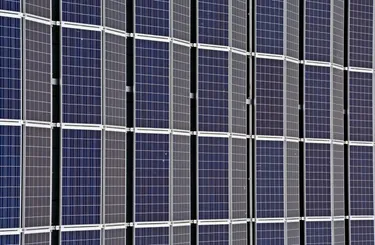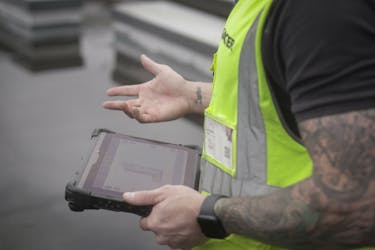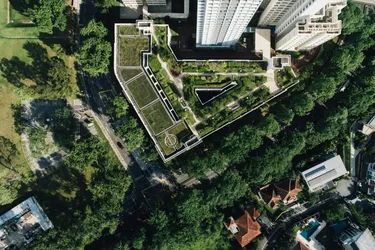
Introducing Axter Solar, a range of turnkey solutions for solar power wherever there’s a roof
Research by the intergovernmental agency IRENA concludes that the cost of energy from solar PV fell by 89% between 2010 and 2022, now standing at a third less than fossil fuels.
Increasingly, more of that energy comes from small, individually owned sites such as building roofs. At the recent COP28 climate change conference, 118 countries pledged to triple global renewable energy sources by 2030. To help support this vitally important transition, we have created a new range of rooftop solar solutions.
This exciting new range offers solar energy generation suitable for virtually any roof, presented not as a standalone solar product, but as an integrated single package of waterproofing and power. To learn more, we sat down with Luke Rootham, Product Manager for Axter Solar.
Congratulations on the launch! Tell us the basics of Axter Solar.
Thank you. We’ve been working towards this since December 2022, so this is certainly a big day.
Roof waterproofing and PV installation are separate, specialist disciplines, requiring different skillsets. For this reason, those who install the different systems typically do not offer both. This may mean that the party seeking a solar roof is directly responsible for liaising with the different installers to ensure the two systems work well together. Our approach streamlines this process.
The core idea behind the new range is to bring everything under one roof, so to speak, which is an expansion of our existing approach. When it comes to waterproofing, we design and manufacture the systems, and we vet our accredited installers and deliver system-specific training before they are authorised to install our roofing systems. One solution with one comprehensive guarantee is offered by the installer-manufacturer team, so the client has a one-stop-shop experience.
We’re now able to offer that experience with solar installations. Part of that will be upskilling for our new, approved solar installers. The training offered by Axter won’t centre on understanding PV systems - which is their specialisation - instead, it will focus on best practice for working with our waterproofing systems. Non-penetrative methods of cable containment, for example. The training we offer will seek to widen the awareness of each specialisation, and encourage mutual respect among all who work on rooftops.
Tell us about the process. What will happen when you are approached about a new solar project?
We have formal documents that help us pin down the project details and requirements, so we’ll start by going through those with the client. From this, we can complete a design proposal. This no-cost process includes design packs with a complete list of the waterproofing and PV elements we will use – not just panels and inverters, for example, but ancillary items such as the cabling we are specifying too.
To help our clients visualise the end result, we create a video simulation of what the project will deliver. We also provide detailed breakdowns of what a client will save in pounds and pence, the energy self-sufficiency levels they will achieve and the amount of carbon the solution will offset annually.
Once the design is agreed, we assemble a team comprising an approved roofing installer, and an approved solar installer. From the design, the installation partners create a fully-costed single quote.
We feel this clear and comprehensive solution offers an unrivalled level of service, product and attention to detail.

Will Axter get involved with work on site?
Certainly. Our QA specialists will conduct regular site visits, as on other projects we undertake. On any project, there will be regular checks of the waterproofing system as we progress towards sign-off. For a technical manufacturer, being onsite is an integral part of the process. Our design proposals are founded on careful site surveys, for example, not just discussion with the client.
Tell us about the products that make up Axter Solar.
The range breaks down into three basic pillars – Solar PV, Solar PV Flex and Biosolar PV. Each of these is a family of possibilities rather than a single fixed offering. A wide range of panels are available, for example, and the Solar PV system can be ballasted or else anchored using our Universal Fixing Points. The ballasted option is the most cost effective, so that would be chosen on roofs that can bear the weight of the ballast.
Solar PV Flex is a lightweight film, a robust bitumen waterproofing membrane with fully bonded thin and flexible CIGS solar panels. One reason to choose it over traditional crystalline panels would be if the roof is not flat. Solar PV Flex can be installed on virtually any roof. The film is just 12 mm thick, so you may select it if you (or the authority granting planning) want a near-invisible solution. Great for heritage projects. It’s also the lightest option. One data centre partner we are talking to wants energy self-sufficiency, but has very little margin for additional load, so the solar film seems ideal.
Solar PV Flex also has the highest fire safety rating for roofing systems, B Roof (T4), something no similar product offers.
We’ve discussed the potential of biosolar roofs before (read about that here), but perhaps you could briefly outline Biosolar PV too.
Where clients want a biodiverse, living roof, we are increasingly seeing that combining it with solar makes sense in the general case, rather than it being a special, additional option. The living roof provides the ballast for the solar system, with no additional weight required. The panels produce a mosaic of shaded and unshaded areas which creates the potential for more biodiversity, and the plants cool the panels, improving their efficiency.
What changes do you expect in the field of solar power?
The technology in PV systems is progressing fast. The panels are getting cheaper and more efficient. When we create our design packs, we’re seeing estimates of 4 or 5 years for recovering the cost of a solar installation. This often surprises people, as it would have been much longer previously, and these figures will only improve.
As a society, we share vital obligations in areas such as carbon emission control and also biodiversity. Roof space is a resource with great potential to help in dealing with these challenges.
To learn more about Axter Solar, please contact us. Solar PV installers interested in Approved Installer status are also invited to get in touch.


